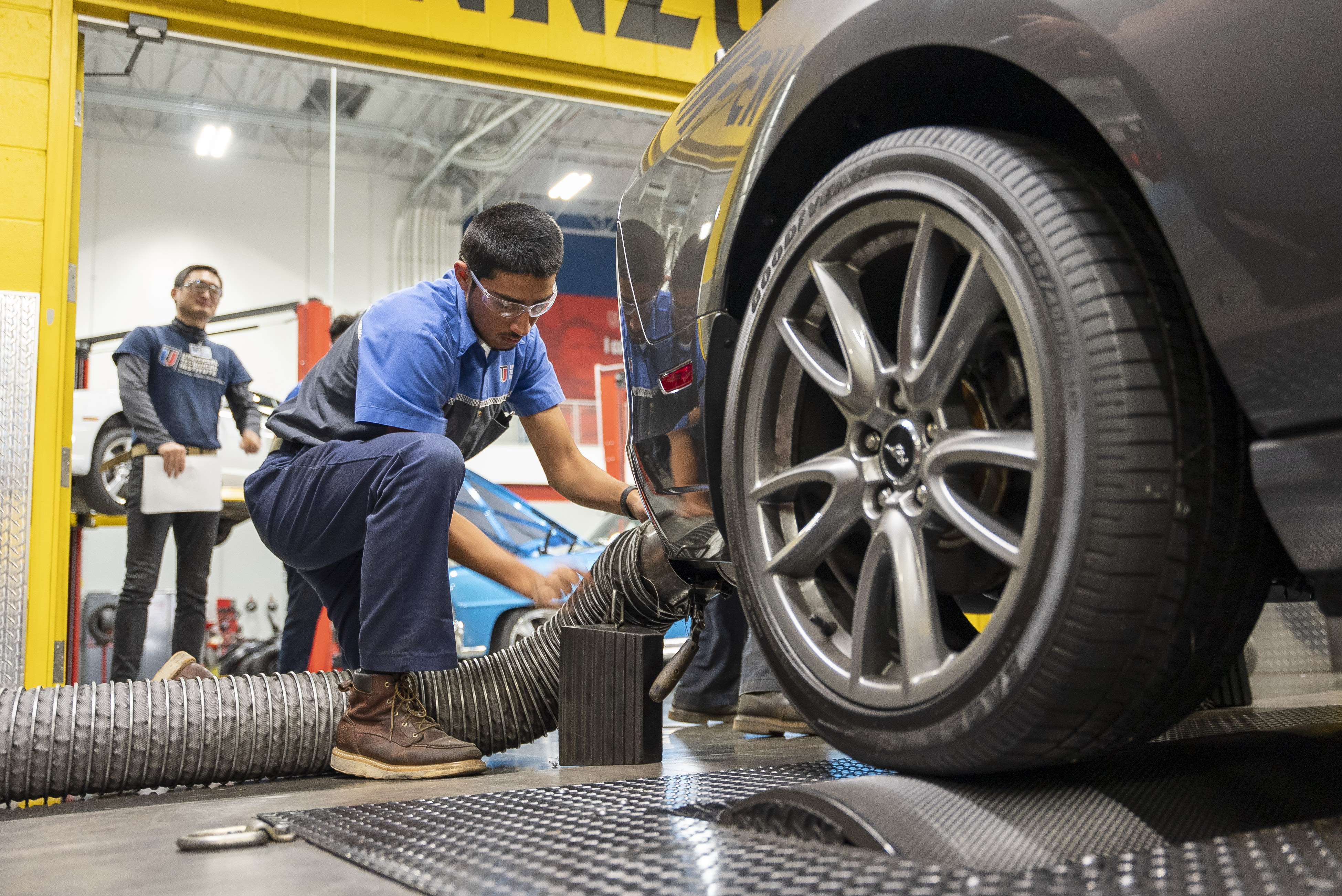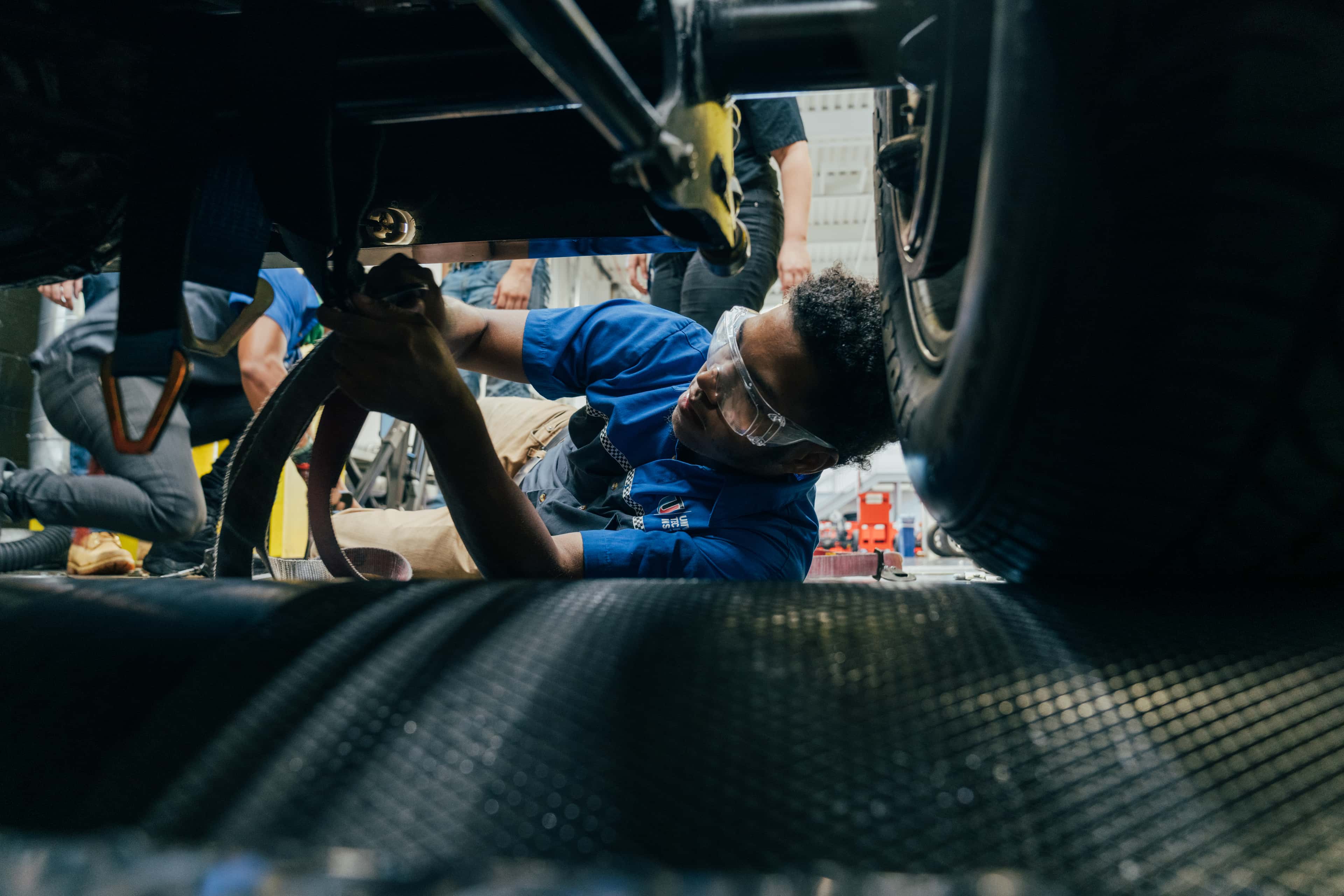UTI’s dynamometer performance course, Power & Performance® II: Bolt-On Performance, helps equip aspiring technicians with the skills to enhance engine capabilities through bolt-on modifications, tuning and strategic component selection.1
What You'll Learn in the Dynamometer Performance Training
Students will gain knowledge in the operation of dynamometer testing with emphasis on tuning and component selection for optimum performance.

Topics include:
Understanding Dynamometer Testing
Students are taught the operation of both chassis and engine dynamometers, gaining hands-on training experience in measuring and analyzing performance metrics such as engine and rear-wheel horsepower.18
Tuning for Optimum Performance
The course emphasizes tuning techniques that maximize performance. Students will explore how adjustments to components impact an engine’s power output and overall capability.
High-Performance Component Selection
Students will use data-driven insights to select components like headers and carburetors. The course covers key formulas and theories for calculating the optimal size and configuration of these parts.
Exploring Induction, Ignition and Powertrain Theories
This course provides a deep dive into high-performance systems, teaching students how induction, ignition and powertrain components work together to enhance vehicle performance.
Analyzing Dynamometer Data
Students will interpret data from dynamometer testing to assess the impact of changes made to an engine’s induction, exhaust and fueling systems, enabling them to make informed adjustments.
Maximizing Internal Combustion Engine Efficiency
Instructors emphasize students' understanding of how bolt-on performance modifications can improve the efficiency and power of internal combustion engines.
Frequently Asked Questions
Yes. UTI’s Power & Performance® II: Bolt-on Performance course introduces students to high-performance tuning concepts, including how turbochargers, superchargers and nitrous oxide systems impact vehicle performance. You can learn how these modifications affect power output and how to adjust tuning accordingly.
You can use chassis dynamometers to measure horsepower, torque and overall engine performance in real time. This hands-on training teaches how to safely operate a dyno, assess vehicle output and make data-driven adjustments in a controlled environment.18
Absolutely. The course trains students to analyze dynamometer results—such as air-fuel ratios, power curves and torque bands—to inform tuning decisions. This foundational skill is essential for anyone looking to work in high-performance or custom tuning shops.1
No prior experience is needed for the Automotive Technology program, which includes this training.
Learn All About Dynamometer Performance at UTI!
After completing this course, students will have gained practical training in dynamometer testing and performance optimization techniques.
Request more information or connect with an Admissions Representative today at 1-800-834-7308 to find out more!

